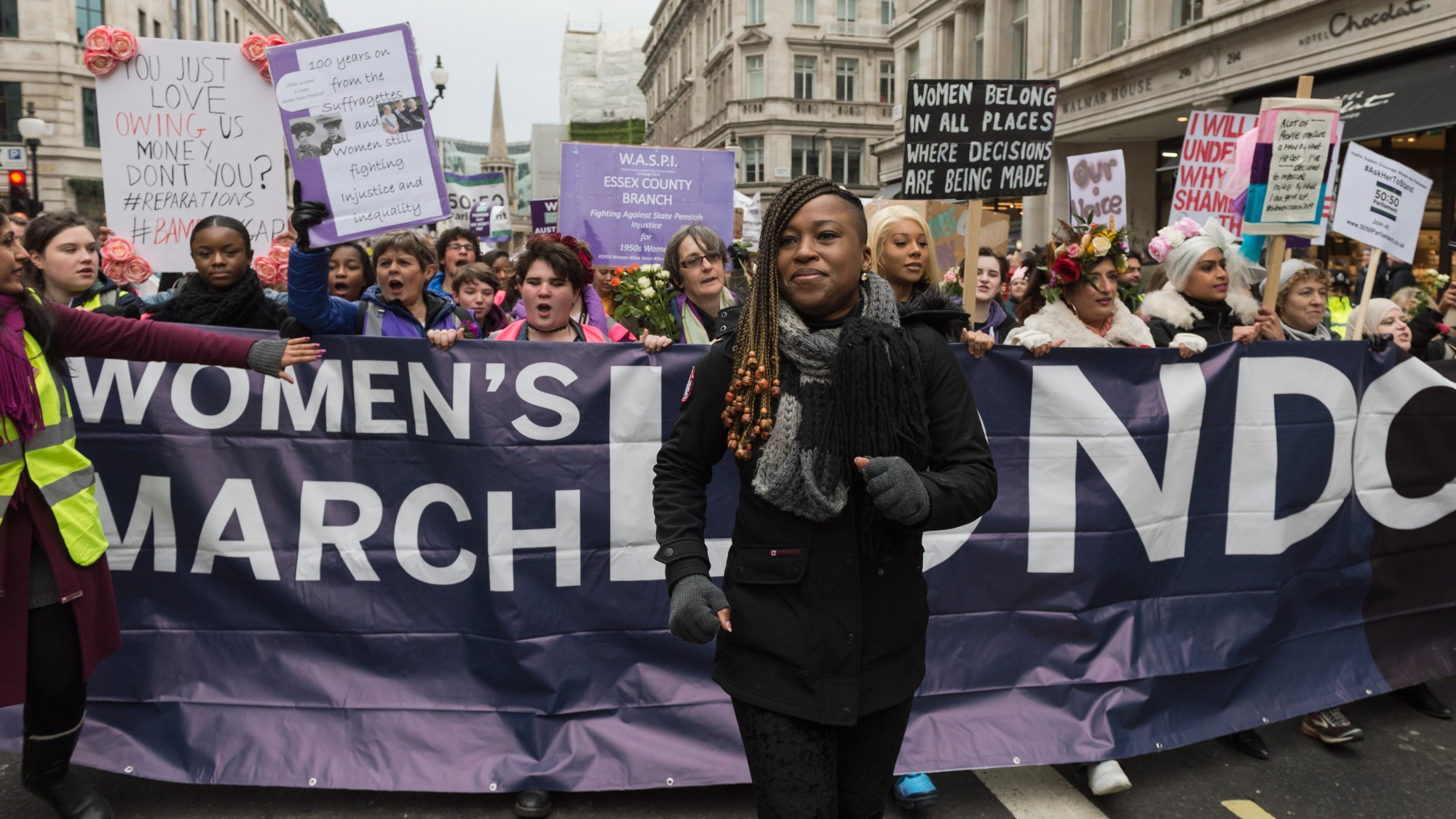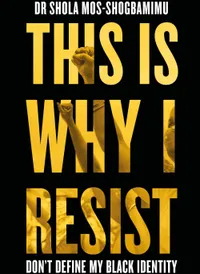Dr Shola Mos-Shogbamimu: 'We can’t talk about the dehumanisation of Black women without talking about colourism'
In the wake of the Candice Braithwaite and Rochelle Humes controversy, we hear from activist, attorney and author of This is Why I Resist, Dr Shola Mos-Shogbamimu – who says we must not pit Black women against each other, but instead hold our TV Networks to account.

Celebrity news, beauty, fashion advice, and fascinating features, delivered straight to your inbox!
You are now subscribed
Your newsletter sign-up was successful
In the wake of the Candice Braithwaite and Rochelle Humes controversy, we hear from activist, attorney and author of This is Why I Resist, Dr Shola Mos-Shogbamimu – who says we must not pit Black women against each other, but instead hold our TV Networks to account.
When Black women talk about colourism, it’s time to pay attention and listen, because there are intersecting nuances to this Black pain. Focusing on one layer alone just doesn’t cut it. The social media uproar over Candice Braithwaite and Rochelle Humes brings colourism to the forefront following an already disturbingly tense year of dehumanising the lived experiences of Black people.
'We can’t talk about the dehumanisation of Black women without talking about colourism'
The outrage at the decision of TV Networks to commission a program on the high mortality rate of Black maternal and pregnancy related deaths with light skinned Rochelle Humes as presenter, but reject a similar program to be presented by dark skinned Candice Braithwaite is not new. It has deep historical resonance for Black women – especially darker skinned Black women. Rejecting the opportunity for Candice to co-present with Rochelle only enforces this. We can’t talk about the dehumanisation of Black women without talking about colourism.
In my book, This Is Why I Resist, I point out that, as though being stigmatised for being Black is not enough, the shade of our skin tone is also the subject of discrimination. Known as colourism, this discrimination divides Black women who are already marginalised for their race and gender by bestowing preferential treatment to lighter skinned Black Women.
The obsession with lighter skin is because of its proximity to Whiteness and the inherited prejudice from legacies of slavery and colonialism that dehumanised the Black skin tone as inferior. Colourism is a double-edged sword – it is racism reproduced by White Supremacy to further prejudice Blacks against Blacks. It is the Stockholm Syndrome of racism because it permeates the Black communities it subjugates so that even within them, lighter skinned Black Women are treated with preference.
'The blame lies with TV Networks, not Candice or Rochelle'
However, it can also draw ire against light skinned Black women as exemplified by some of the negative social media comments against Rochelle Humes – which, in my opinion, are totally unwarranted. The blame lies squarely with the TV Networks not with either Rochelle or Candice; we should support both.
This is Why I Resist by Dr Shola Mos-Shogbamimu–£18.50| Afrori Books
Oscar winning actress, Lupita Nyong’o, described colourism as "the daughter of racism", explaining it "rewards lighter skin over darker skin". What colourism does is as physically, emotionally and mentally destructive to a Black Woman’s self-esteem and sense of self as the erasure of her physical, emotional and mental experiences of abuse. Colourism is oppression and its use as a tool of preference for lighter skinned Black Women in media, politics, schools, modelling and many other areas stifles opportunities and outcomes for darker skinned Black women, and pits Black Women against each other. This is white supremacy. Today, shades of Black skin tones are still racialised, prejudiced against and used to define the worth and beauty of darker skin toned Black Women. I unequivocally reject this.
Celebrity news, beauty, fashion advice, and fascinating features, delivered straight to your inbox!
'Black pain is being devalued for entertainment'
What makes the Candice Braithwaite and Rochelle Humes situation more dire is the decision to commission with a preference for someone "who is removed from the situation so that the element of discovery is genuine". Selecting a presenter on this basis devalues the seriousness of the higher mortality rate of maternal and pregnancy related deaths among Black women. For what is meant to be an investigative documentary into a critical issue, it feels like Black pain is being devalued for entertainment purposes.
This shouldn’t take away from Rochelle’s ability to deliver a sensitive and empathetic presentation and her intention to create broader awareness to affect change, but it does discredit Candice’s personal experience of – and advocacy on – the very issue she has long publicly campaigned on, and which would have added invaluable insight to millions of viewers. It's therefore understandable why many Black women are outraged and disgusted by the selection process of who is best placed to tell their story.
'We must not let this sow division among Black women'
I explain in This Is Why I Resist that the racial bias on the pain thresholds of Black women – especially dark skinned Black women – contributes to higher Black maternal and pregnancy related deaths. Expectant Black mothers are not taken seriously, listened to or given any empathy in their care because they are ‘strong Black women’. In Britain, there is a five-fold higher mortality rate for Black women compared to White women. A significant contribution to this is the centuries-old trope that Black women don’t experience pain like White women. This is utter nonsense to justify the inhumane treatment of Black women and the health disparities and inequalities they face.
I experienced a significant tear with the birth of my first child that led to third degree stitching from my vaginal opening to my anal sphincter. It scarred me. I recall saying to the doctor and nurses as I was sewn up that I could feel the needle threading through my skin and I was in pain. I was ignored and nothing additional was given to me to stop the pain. I did not know what I know now.
It is imperative to understand that Black centred issues are not often given air time in the media or the opportunity to be produced from different points of views. So when we get an opportunity for our lived experiences to be told, such as high mortality rates of Black maternal and pregnancy related deaths, we are strongly invested. We may not get another chance. TV Networks must be held to account for what can be perceived as racially biased decision making and we must use our consumer power to make a stand. We must not let this sow division among Black women. Let’s change the system.
This is why I resist.
The leading destination for fashion, beauty, shopping and finger-on-the-pulse views on the latest issues. Marie Claire's travel content helps you delight in discovering new destinations around the globe, offering a unique – and sometimes unchartered – travel experience. From new hotel openings to the destinations tipped to take over our travel calendars, this iconic name has it covered.
